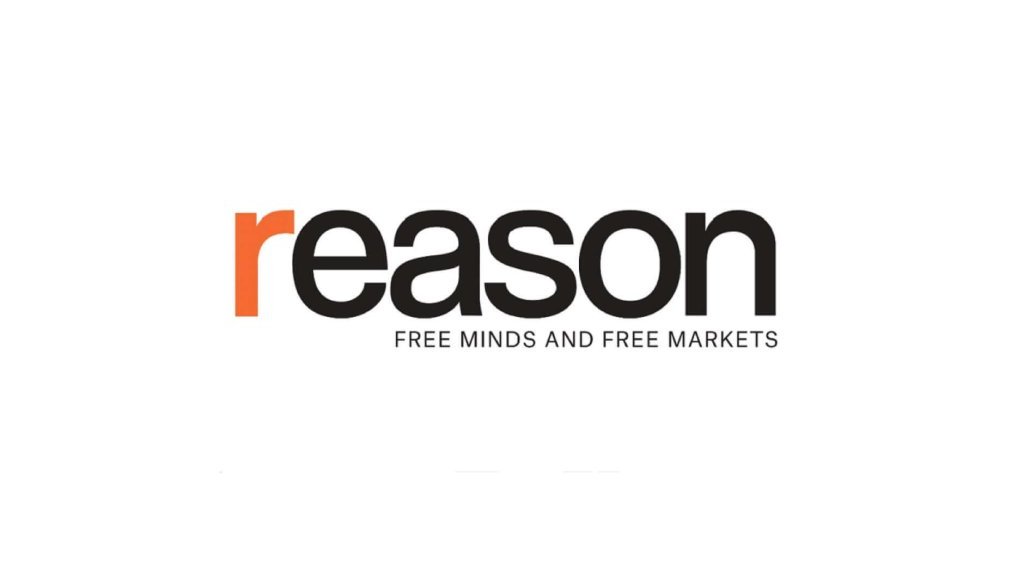Kennedy: A Gen X Rebel’s Journey From MTV to Fox News
Transcript
This is an AI-generated, AI-edited transcript. Check all quotes against the audio for accuracy.
Nick Gillespie: This is The Reason Interview With Nick Gillespie.
All right, so we know the names, right? The single-named beings that stride our planet like latter-day gods—Madonna, Prince, Sting, Björk, Liberace, and, of course, Kennedy, my guest tonight. Kennedy, thanks for talking.
Kennedy: Thank you, and thank you, Nick Gillespie.
I’m not sure which name I want to get—should I get rid of Nick or Gillespie or come up with something new? Evita’s up for grabs.
Evita Portmanteau, I think. Evita.
Evita, right? Let’s talk about the early days of Kennedy as a public figure. You started working at MTV around 1992.
Correct. It was September of 1992, right before Bill Clinton was elected.
Yeah. I want to spend a lot of time talking about Gen X. Even though I am a part of the baby boom, I’ve become possessed with the idea that Gen X is the best generation, and its characteristics are what we need in America today.
But before we get to that, because you mentioned Bill Clinton and that was the big generational shift—he was the first baby boom president—can you paint a scene? What was it like at MTV when Bill Clinton won the presidency?
It was so hopeful. People were so optimistic in New York, and, of course, MTV at the time was populated by East Coast elites, big-city liberals. A lot of people had gone to places like Yale and Dartmouth, and a lot of Emerson College graduates were at MTV, and they were ready—
So, a lot of miming in the hallway.
Yeah, so much mummenschanz.
And they were ready for their president. The MTV News department, which was fairly new and gaining influence at that time, they were putting a lot of money and resources into MTV News and wanted to cover the political campaign in a new way for this generation—who were just interfacing with politics and news for the first time.
When Bill Clinton was elected, they didn’t really pay attention to the data. They just looked at everything and looked at all the coverage, the publicity that the Choose or Lose campaign got—and they were like, “Well, MTV elected Bill Clinton. And you are so welcome.”
They didn’t talk about Ross Perot. They didn’t talk about the 12 years of the Reagan-Bush era. It was just like, “no, MTV was here and ordained Bill Clinton as president.” It was a massive shift.
It’s hard to recover that, and I think we’re going through something similar now—which will probably fully come online in a couple years—where it’s the first millennial president or something.
But you were the resident Republican at MTV. What were you thinking? And why were you a Republican, and what did that mean to you?
I was a Republican because I grew up in Oregon where everyone was liberal, and the people who were really into politics didn’t seem particularly happy.
There was a kid at my high school named Creighton Webb who was the president of the Teen Republicans. He invited me to go to a couple of chapter meetings, and then he invited me to meet Dan Quayle in Portland when I was a senior in high school.
And you famously kind of splooged over Dan Quayle, didn’t you? He was a handsome, robust young man.
I’m not going to say that it was externally ejaculatory, but I will say that I felt like there was such a connection between us. I think when you feel a connection like that—and any stalker can co-sign this—it can’t be one-sided.
When you feel something that deeply and that intensely with another human being, obviously they feel the same thing for you. There’s that famous Mookie Wilson fake quote: “Whenever I’m going through a slump, I just think about dinosaurs. And then I think, if I’m thinking about dinosaurs, then somewhere the dinosaurs are thinking about me. And if the dinosaurs believe in me, then I can believe in me. And all of a sudden I feel better.”
It’s a totally fake quote, but it’s one of my favorite things in the world. That’s how I felt about Dan Quayle.
So, what was—beyond being contrarian—the appeal of being a Republican?
I mean, it really was, at that point in my kind of immature, developing brain, it just made people so mad.
I had this one English teacher—
This is a great part of Gen X.
Yeah, I mean, I had this one English teacher who was such a blowhard and he was such a liberal. He talked about going to Tibet and throwing himself naked on the side of a mountain.
And he failed me, and I hated him with a blinding passion. The thing he really hated about me was that I started cavorting with the Teen Republicans. They were really fun. They were rabble-rousers.
I compare it to young men in high school and college today who wear MAGA hats. They don’t necessarily believe in the Trump doctrine—whatever that means for them—but they just know their constipated, liberal social studies teacher in high school, nothing makes them seethe like this. And there’s something really satisfying about that. I think there has to be something utilitarian about making people you don’t respect that angry.
I’ll put that in terms of evolutionary biology where the people who did that did not get eaten by the lions or something—I don’t know.
But you then evolved—and you evolved upward—to a libertarian position, partly because of the people you met at MTV. Can you talk a little bit about what took you from being a kind of oppositional or contrarian Republican to a self-declared libertarian?
Yeah, there was a lot of stuff that I liked about the Republican Party in 1992 and 1993 because it became the opposition party. But what I didn’t like about it was I had a lot of gay friends—especially being in New York, being young, being in music—and I didn’t like the way that, you know, because Jesse Helms was still alive, and one of his famous quotes was, “You become what you condone.” And I’m like…
Oh, wow.
I don’t think I’m going to become a gay man anytime soon.
I mean you still got—
But right now, like, I totally could. I could be like, “Tomorrow, I’m a gay man.” They’d be like, “Great. We’re going to throw you a parade. Congratulations.”
But the social conservatism was really off-putting. I liked the idea of aspirational success. I was having dinner with Kurt Loder one night, and he was like, “You’re not a Republican.” He was getting really frustrated. He was very angry about the Clinton White House and was disgusted by what he saw as encroaching big government.
And I was like, “I hate that stuff too.” But he’s like, “You’re a libertarian.” I didn’t know what that meant, but I was very intrigued by the idea because I was also very good friends with Dweezil Zappa, and we would sit and talk with his father, Frank, who at the time was being treated for metastatic prostate cancer.
He would lose his battle with that the year after I met him. But listening to Frank—because we wouldn’t talk; I didn’t have a lot to add to the discussion—but listening to Frank…
I get the impression too that Frank Zappa didn’t really need people to fill the pauses.
He didn’t. He was a very interesting person. Loved coffee. He talked about libertarianism, and he was really interesting in the way Kurt Loder was really interesting. They both were energized and super-powered by music.
Obviously, Frank Zappa was creating music in a way that no one ever had, and musicians that I love respected him so much. And Kurt Loder analyzed and understood music in the way a critically thinking journalist would. He didn’t have to make music to really want to exist inside of it, take it apart, and explain it to people.
So if both of those people—who were infinitely smarter and more experienced than me—had a name for the same kind of conclusion, and one of them was saying, “You’re a libertarian” as well, then I wanted to investigate that.
And you have mentioned that Kurt gave you an Ayn Rand book.
And I still have it. I rescued it—
And you became a libertarian regardless.
Yeah, exactly. So I have a home in Pacific Palisades that is uninhabitable. It is filled with lead and asbestos, and the insurance company is trying to deny our claim. Everything around us burned—three houses in either direction.
Everything around us burned. The back door blew open, and that means that every microwave, every piece of siding, every Tesla, everything in the neighborhood burned. The incineration and the aftermath filled our house, as it did with the people who were fortunate enough to keep their homes.
Pretty much everything in the house has to be thrown away. And there were two books that I—well, there are three. A really, really old edition of Les Misérables in French, and Emmanuel was like, “Oh mon Dieu, c’est fantastique.” One was, of course, I found the copy that Kurt gave me of Objectivist Epistemology.
And the other was a book called You Are the Message. I had it autographed by the author in 1993 when he and I were co-panelists on one of the earliest episodes of Politically Incorrect, which at the time was on Comedy Central.
The inscription on the book is, “Dear Kennedy, I think you’re fantastic. Do you fool around?”
Yeah and wait for the punch line, that book was written by Roger Ailes.
And no, I didn’t fool around. There was no fooling around. And as Mary Katharine Ham pointed out years later, he didn’t really have a thing for quirky libertarian brunettes.
Yeah, that’s not his type. What was it about libertarianism that appealed to you then?
Freedom.
Like the freedom to be successful, the freedom to make academic inquiry without being married to groupthink, and the freedom to allow people to do whatever they wanted because I saw so much of that going on around me in music.
As long as it didn’t affect me, you know, there was a relationship between debauchery and creativity that I always found so fascinating. That intersection was so rich because it could be chaotic and destructive and deadly, or it could be mind-blowing and soul-shaking and beautiful.
A lot of the social conservatives they did condemn that. They condemned music, they condemned lyrics, and they condemned partying of any kind. Even though I was really straight-edged at the time, I loved being around people who rode the razor’s edge.
Did the people in the music industry or in entertainment industry—they wanted creativity and the freedom to create, but their politics tended to be the most suffocating form of, “Well, I should be allowed to do what I want, but you… you have to turn your thermostat down, you have to drive this kind of car, work this kind of way”? How does that kind of cognitive dissonance maintain itself?
I think it sort of dies for a little bit and hibernates, and then it comes back. It comes back as Occupy Wall Street, and now it is regenerated and reanimated as “The Squad.”
You see this progressivism which obviously wants to increase the size and power of the state, but at the same time there’s an edict. There are these arbitrary rules that you must live by. And if you’re not, you’re the other. You are a bad person, and you must be conquered and crushed. You can’t go on private jets. You can’t build skyscrapers. You can’t use gas stoves, but “I’m going to go cook a video on Instagram Live and it’s gonna be on my gas stove because I’m so amazing. Let’s go celebrate the global intifada.”
You know, the show that you…
That’s Chuck Schumer, by the way.
I’m glad somebody knew who that was.
The show that you hosted on MTV—I mean, you were on a bunch of things—but it was called Alternative Nation. One of the things that was kind of great about the ’90s was that alternative music became mainstream. It was the mainstream. There was no mainstream anymore.
There was a period of time where things that were labeled “alternative” were the bestselling type of music. And throughout the culture, there was a real celebration of people hiving off and experimenting and doing their own thing and moving away from the old gods and creatin
Article from Reason.com

The Reason Magazine website is a go-to destination for libertarians seeking cogent analysis, investigative reporting, and thought-provoking commentary. Championing the principles of individual freedom, limited government, and free markets, the site offers a diverse range of articles, videos, and podcasts that challenge conventional wisdom and advocate for libertarian solutions. Whether you’re interested in politics, culture, or technology, Reason provides a unique lens that prioritizes liberty and rational discourse. It’s an essential resource for those who value critical thinking and nuanced debate in the pursuit of a freer society.




